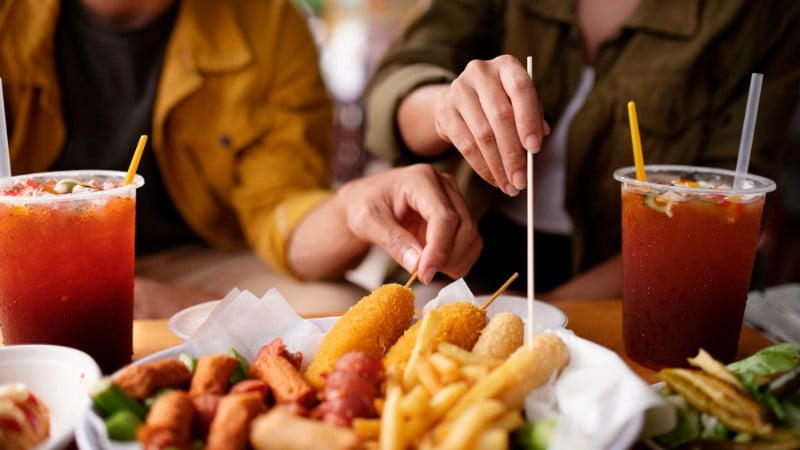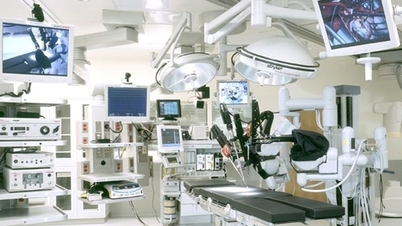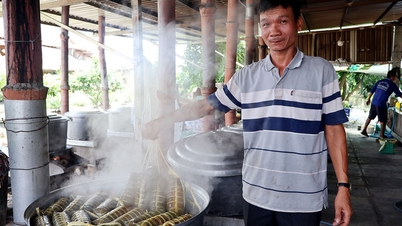
With the increasingly hectic pace of modern life, choosing fast food such as instant noodles, fried chicken, sausages, milk tea, snacks... to replace traditional meals has become popular, especially among young people.
Doctor Nguyen Phoi Hien, University of Medicine and Pharmacy Hospital , Ho Chi Minh City, branch 3, pointed out that eating problems will put a burden on the kidneys.
Fast food is convenient but poor in nutrients and can easily overload the kidneys.
Dr. Nguyen Phoi Hien, Ho Chi Minh City University of Medicine and Pharmacy Hospital, Campus 3, said that fast food often contains a lot of calories but is poor in micronutrients. Instant noodles, french fries, fried chicken, snacks... mainly provide refined carbohydrates, saturated fat, sodium salt and preservatives.
Meanwhile, a traditional meal - if prepared properly - will provide a source of protein, vitamins, minerals and fiber from vegetables, meat, fish and brown rice. When rice is completely replaced by fast food, the body will lack the necessary nutrients for metabolism, including the excretory function of the kidneys.
Too much salt and additives increase the burden on the kidneys
Most fast foods are very high in salt (sodium) to create a strong flavor and preserve it for a long time. According to the World Health Organization (WHO), an adult should not consume more than 5g of salt per day. However, a pack of instant noodles can contain 1.8-2.5g of salt, not to mention the amount of salt from other dishes during the day.
When you consume too much salt, your kidneys have to work overtime to remove excess sodium from your body. Over time, this can lead to high blood pressure, which is one of the leading causes of chronic kidney failure.
In addition, additives such as monosodium glutamate (MSG), inorganic phosphate (found in many types of sausages, processed cheeses...) are also related to kidney cell damage if used long-term at high doses.
Sugar and phosphorus in milk tea and soft drinks
Young people's favorite drinks such as milk tea, soft drinks, energy drinks, etc. contain unusually high amounts of sugar, and also pose potential risks from additives, colorants, and artificial sweeteners.
Drinking too much sugar increases the risk of obesity, insulin resistance, and diabetes. These are all factors that promote glomerular damage.
Furthermore, creamers and toppings in milk tea often contain inorganic phosphate - a form that is easily absorbed quickly, which can cause an imbalance in calcium-phosphorus metabolism, increasing the risk of vascular calcification and glomerular damage in young people.
Fast food not only "obesifies" but also "nephrodisiacizes" the young generation.
In clinical practice, doctors have recorded an increasing number of young patients with chronic kidney disease without any history of underlying disease. Part of the reason is due to a sedentary lifestyle, eating a lot of processed foods, drinking milk tea instead of water, skipping rice and eating noodles, skipping meals, and eating at night.
Every “convenience” of skipping a home-cooked meal disrupts the body’s homeostasis. The kidneys are the silent organs responsible for filtering blood and eliminating toxins, and if they are overworked for many years, the consequences will come quietly and persistently.
In Vietnam, according to statistics from the National Institute of Nutrition (2023), the rate of children and adolescents with diets exceeding the threshold of salt, sugar and fat is increasing, but they are severely deficient in vitamins A, D, iron and zinc - essential elements for the functioning of the immune system and internal organs, including the kidneys.
Kidney protection solutions from… home-cooked meals
Doctor Nguyen Phoi Hien emphasized that there is no more miraculous remedy than returning to a balanced, varied, and timely diet. Each day, you should maintain 3 main meals, increase green vegetables, fresh fruits, healthy proteins (fish, beans, lean meat), and limit foods high in salt, sugar, and fried oil.
Remember, milk tea can't replace water, instant noodles can't replace rice, fast food can't replace real nutrition.
WHO recommends a low-salt diet, blood sugar control, maintaining a healthy weight and increasing physical activity for at least 150 minutes per week as core factors for early prevention of chronic kidney disease.
Fast food addiction is not just a matter of habit or preference, but also a serious health risk to the whole body, especially the kidneys. Replacing rice with instant noodles, snacks and milk tea not only reduces the nutritional quality but also causes long-term damage to the most important excretory organ in the body.
"Eating habits are one of the important things to pay attention to and using a scientific diet is the way to protect sustainable health," said Dr. Nguyen Phoi Hien.
Source: https://nhandan.vn/nguy-co-suy-than-vi-nghien-do-an-nhanh-post909850.html






![[Photo] General Secretary To Lam attends the 1st Congress of the Central Party Committee of the Fatherland Front and Central Mass Organizations](https://vphoto.vietnam.vn/thumb/1200x675/vietnam/resource/IMAGE/2025/9/23/2aa63d072cab4105a113d4fc0c68a839)





















































































Comment (0)